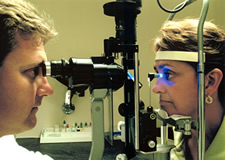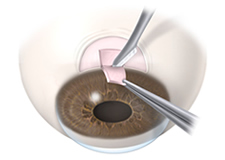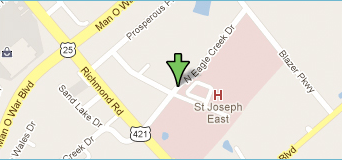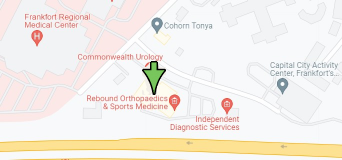Surgical Services
Glaucoma Consultations and Surgical Care
 Glaucoma is a leading cause of blindness in the United States. Glaucoma can affect patients of all ages. Known as the “sneak thief of sight”, many people affected with glaucoma do not experience any symptoms and may not be aware that they have the disease until they have lost a significant amount of vision. With early detection and treatment, eyes can be protected against the serious loss of vision or blindness.
Glaucoma is a leading cause of blindness in the United States. Glaucoma can affect patients of all ages. Known as the “sneak thief of sight”, many people affected with glaucoma do not experience any symptoms and may not be aware that they have the disease until they have lost a significant amount of vision. With early detection and treatment, eyes can be protected against the serious loss of vision or blindness.
Causes of Glaucoma
Glaucoma develops when the pressure inside the eye rises, damaging the optic nerve and causing vision loss. The condition often develops over many years without causing pain or other noticeable symptoms – so you may not experience vision loss until the disease has progressed.
Risk Factors for Glaucoma
There are several factors that contribute to the risk of developing glaucoma. They include some of the following:
- Age
- Ethnicity
- Family history of glaucoma
- Myopia
- Hyperopia
- Thin corneas
- Elevated eye pressure
- Diabetes
- Low blood pressure
- Medication
- Eye injury
- Eye condition
Symptoms of Glaucoma
Symptoms of glaucoma vary depending on the type of glaucoma. Glaucoma can develop in one eye or both eyes. Some of the symptoms of glaucoma are as follows:
- Blurred vision
- Loss of peripheral vision
- Blank spots in the vision
- Severe eye pain
- Nausea
- Vomiting
- Headache
- Halo effects around lights
- Painful or reddened eyes
Diagnosis of Glaucoma
The diagnosis of glaucoma is determined after a comprehensive medical examination of the eye and a review of the patient’s medical history. Tests will be conducted to confirm the diagnosis. Testing may include some of the following:
- Tonometry
- Dilated eye examination
- Visual field test (perimetry)
- Retinal evaluation
- Pachymetry
- Gonioscopy
- Visual acuity test
- Tonometry
- Dilated eye examination
- Visual field test (perimetry)
- Retinal evaluation
- Pachymetry
- Gonioscopy
- Visual acuity test
Treatment of Glaucoma
Once glaucoma has been diagnosed, treatment should begin as soon as possible to help minimize the risk of permanent vision loss. There is no cure for glaucoma, so treatment focuses on relieving symptoms and preventing further damage from occurring. The best treatment for your individual case depends on the type of glaucoma and severity of the disease, and can be discussed with your doctor. Some of the treatment methods for glaucoma are as follows:
Glaucoma Filter Surgery
 Glaucoma filter surgery, otherwise known as trabeculectomy, is one of the most common procedures used to treat open-angle and chronic closed-angle glaucoma. A new drainage passage is created by cutting a small hole in the sclera (the white part of the eye) and creating a collection pouch between the sclera and conjunctiva (the outer covering of the eye). This serves to create a system for bypassing the blocked drainage channels, encouraging fluid drainage and reducing eye pressure.
Glaucoma filter surgery, otherwise known as trabeculectomy, is one of the most common procedures used to treat open-angle and chronic closed-angle glaucoma. A new drainage passage is created by cutting a small hole in the sclera (the white part of the eye) and creating a collection pouch between the sclera and conjunctiva (the outer covering of the eye). This serves to create a system for bypassing the blocked drainage channels, encouraging fluid drainage and reducing eye pressure.
Glaucoma filter surgery is usually an outpatient procedure that does not require a hospital stay. Most patients only experience mild pain post-surgery. The treated eye must remain covered at night for several weeks after the procedure. In addition, patients will need to apply a corticosteroid to the eye to reduce swelling for up to two months. Activity will be somewhat limited for the first few weeks after glaucoma filter surgery, and your doctor will discuss your specific restrictions.


